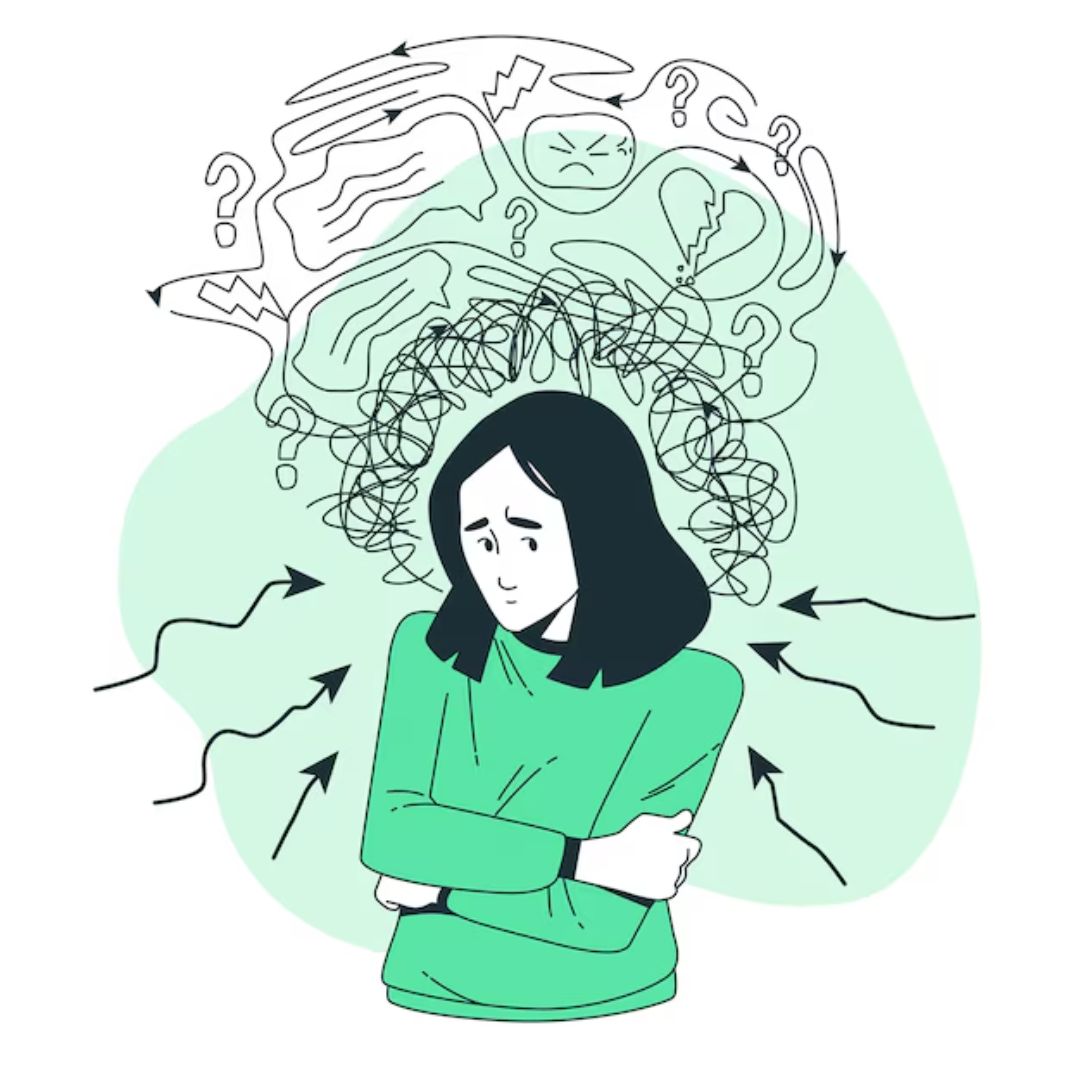
Clear the Clutter, Clear Your Mind: 5 Surprising Mental Health Benefits of Junk Removal in 2025
As we enter the new year, many of us reflect on what we want to change, improve, or achieve. While resolutions often focus on physical health or personal growth, one area that’s often overlooked is mental health—and surprisingly, it starts right at home. Why not start 2025 with a clean slate by tackling that pile of junk you've been meaning to get rid of?
Decluttering and junk removal do more than just improve the look of your living space; they can also have a profound impact on your mental health. Here’s why clearing out the clutter could be the best New Year’s resolution you ever make—and how College HUNKS Hauling Junk and Moving can help.

1. Decluttering Reduces Stress and Anxiety
It’s no secret that clutter can make a space feel chaotic. When your environment is disorganized, it can lead to feelings of overwhelm and stress. Studies have shown that clutter increases cortisol levels (the stress hormone), which can contribute to anxiety and a sense of being out of control.
A study conducted by the Personality and Social Psychology Bulletin found that individuals with cluttered homes reported feeling more fatigued and stressed than those in tidy environments. Conversely, those who decluttered felt more relaxed and had lower stress levels.

2. Creating an Organized Space Promotes Clarity and Focus
A cluttered environment not only stresses you out but can also reduce your ability to concentrate. Research from Princeton University found that physical clutter competes for your attention, making it harder to focus on important tasks.
On the flip side, organizing your space allows you to focus better and increases productivity. When everything has its place, your mind can focus on the things that matter, whether it’s work, personal goals, or relationships. Starting the year with a clean and organized home can clear mental blocks, allowing you to approach tasks with a fresh mindset.

3. Physical Cleanliness Leads to Mental Clarity
There’s a psychological concept called "the connection between physical and mental well-being." When we feel like our space is dirty or disorganized, it often translates into feeling like we’re losing control over other aspects of our lives. The process of junk removal can feel like taking control back.
By ridding your home of items that no longer serve you, you're not only cleaning up your environment but also creating mental space for new possibilities. Studies have shown that people who maintain a tidy environment often feel more positive and in control of their lives, which can significantly improve mental health.

4. The Emotional Benefit of Letting Go
Many of us accumulate items that we don’t need or use, often holding onto them due to sentimental attachment. However, cluttering your space with things tied to past emotions can weigh you down mentally. Letting go of these items can be emotionally freeing.
Marie Kondo, author of The Life-Changing Magic of Tidying Up, promotes the idea of keeping only the items that “spark joy,” encouraging people to part with items that no longer serve them. This process can be emotional, but it’s also empowering. When you let go of physical objects, you're symbolically letting go of the emotional weight they carry, which can be a major boost to your mental health.

5. Boosting Your Mood with a Fresh Start
Finally, one of the most significant psychological benefits of junk removal is the simple feeling of accomplishment. Taking on the task of decluttering, even in small steps, can give you a sense of control and achievement. This small victory can significantly enhance your mood and set the tone for the year ahead.
By clearing out the clutter, you’re also making room for positive energy and new opportunities in your life. A clean and organized space is often seen as a reflection of a fresh, new start—something everyone needs to feel motivated and inspired as they approach the year ahead.

A Step-By-Step Guide to Tackling Junk Removal
Now that we’ve covered the psychological benefits of decluttering, how do you get started? Here's a simple guide to help you kick off your junk removal project and start 2025 with a clean, clear mind.
- Start Small: Tackle one area at a time. It could be a closet, your garage, or a drawer. Breaking it down into manageable chunks will make it feel less overwhelming.
- Sort and Purge: Decide what to keep, donate, sell, or throw away. Be honest with yourself—do you really need it? Does it bring value to your life?
- Organize What’s Left: Once you’ve cleared out unnecessary items, organize the remaining ones. Invest in storage solutions or create designated spaces for your belongings to keep your space tidy.
- Get Help: If the task feels too daunting or you just don’t have the time, consider getting professional help. College HUNKS Hauling Junk and Moving offers junk removal services that can quickly and efficiently clear out unwanted items, helping you create a space that fosters mental clarity.
- Maintain: After your junk removal, commit to regular cleaning and organizing to keep your space clutter-free. Even small daily habits, like putting things away immediately or doing a weekly tidy-up, can help maintain the calm and control you’ve worked so hard to achieve.
Conclusion
Decluttering and junk removal do more than just enhance the aesthetic of your home—they offer real psychological benefits. By reducing stress, boosting your focus, and helping you let go of emotional baggage, clearing out your physical space can create a sense of mental peace. So, this year, take the first step towards a healthier, more organized life with College HUNKS Hauling Junk and Moving and experience the transformative power of decluttering firsthand.
 Top of Form
Top of Form
Personality and Social Psychology Bulletin study: "When the physical environment is cluttered, it has negative consequences for our cognitive functioning, making it difficult to focus and leading to heightened stress levels." (Kiecolt-Glaser, J. K., et al., 2011).
Kiecolt-Glaser, J. K., McGuire, L., Robles, T. F., & Glaser, R. (2002). "Emotions, morbidity, and mortality: New perspectives from psychoneuroimmunology." Annual Review of Psychology, 53, 83–107.
Princeton University study: "Clutter has the effect of competing for our attention, which can cause a significant decrease in focus." (McMains, S., & Kastner, S., 2011). Princeton University Neuroscience Institute.
McMains, S., & Kastner, S. (2011). "Attention and the control of eye movements." Current Opinion in Neurobiology, 21(5), 868-876.
Environmental Psychology: An Introduction by Robert Gifford (2013).
Kondo, M. (2014). The Life-Changing Magic of Tidying Up: The Japanese Art of Decluttering and Organizing. Ten Speed Press.
"Clutter, Disorganization, and Mental Health" in Psychology Today (2013).Bottom of Form
